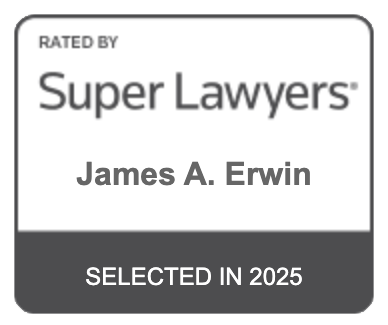James A. Erwin
From time to time, we receive calls from unit owners that have purchased units in a newly constructed or converted condominium project that is still developer managed. As the turnover of control nears, these unit owners often express concern about the effect of the turnover on items which remain in dispute with the developer, typically construction defects, sometimes within the units and sometimes in the common elements. Very commonly, the owners are calling to retain our assistance in delaying the turnover until such time as the developer has remedied all defects. The theory and fear being that, once the unit owners accept control of the association, the developer will disappear and the association will be left holding the bag of defects. This theory is flawed.
Pursuant to Section 18.2 of the Illinois Condominium Property Act, a turnover of control of the association to the unit owners should take place upon the earlier occurrence of either sixty days from the closing on the sale of 75% of the units or three years from the date of the recording of the declaration. Even if unit owners wanted to delay the turnover, once faced with one of these two deadlines, the statute does not grant them the authority to refuse the turnover. In fact, should they do so, Section 18.2 further provides that the developer may resign after 30 days from the passing of the deadline. To refuse the turnover is actually against the interest of the unit owners. In actuality, especially where a developer has been negligent or otherwise failed to comply with its obligations, the unit owners should expedite rather than delay the turnover.
It is important to remember what it is that is being turned over – control and management of the association. This is critical because until the unit owners have elected their own initial board of managers and take control of the association, they cannot take action as a collective body and cannot take meaningful measures against the developer to enforce compliance issues. Only when the owners have formed their own board can they make a full and proper review of the association’s financial and legal records. This is one of the first steps in determining what action, if any, the association may need to take against the developer. The sooner that determination is made, the more likely the association is to have viable leverage against the developer should it be necessary. Bear in mind that if the turnover occurs while the developer still has some unsold units in the project, those units then become subject to the unit owners’ management. The association’s rights to levy upon and even foreclose upon those units apply just as they do to any other unit within the project. Furthermore, unit owners should note that they likely do not have standing to individually sue a developer for defects in the common elements – that right is reserved to the association and will clearly not be invoked if the developer controls that association. And the limited warranties that buyers receive covering their units do not apply to defects in common elements.

All materials herein have been prepared by Erwin Law for informational purposes only and are not legal advice. Transmission of the information is not intended to create, and receipt does not constitute, an attorney-client relationship between you and the rm. You should not act upon this information without seeking professional counsel.
Copyright © 2025 Erwin Law. All Rights Reserved.